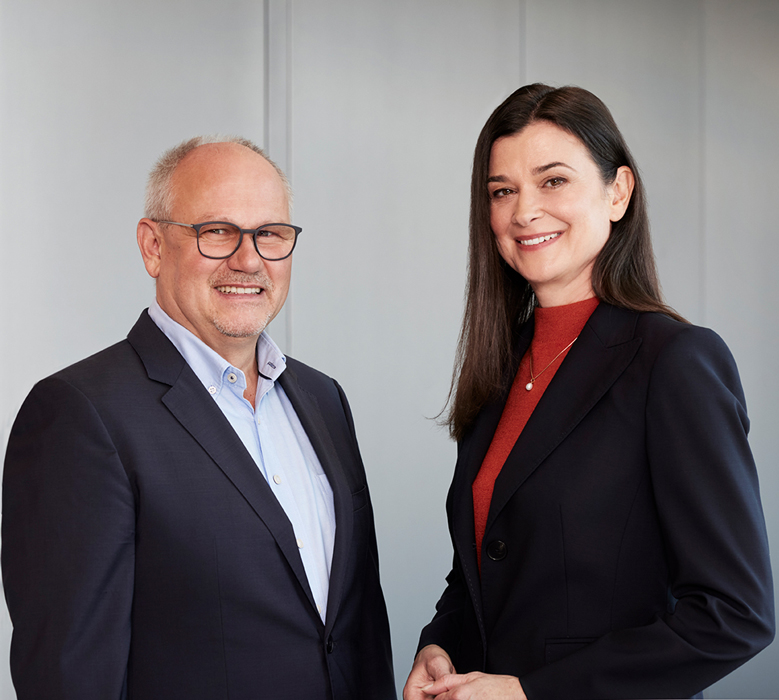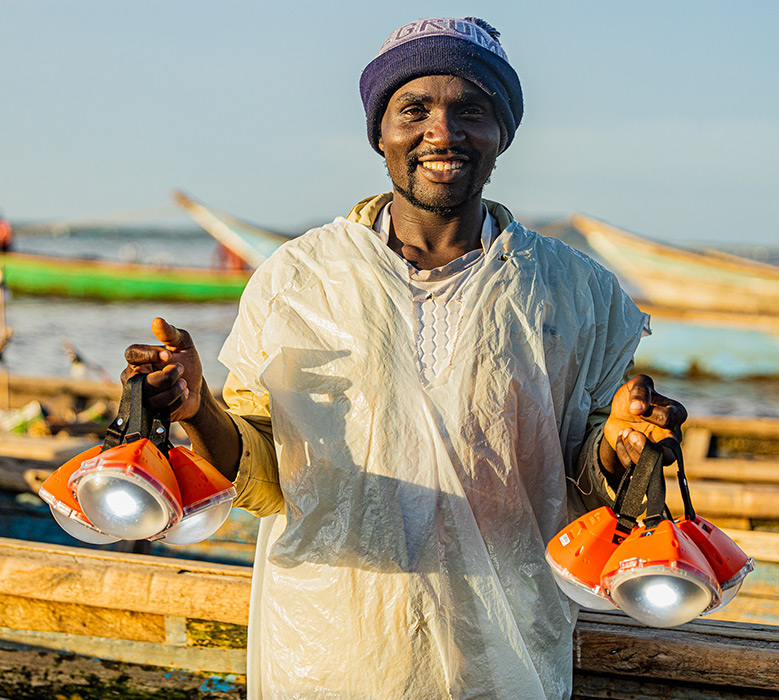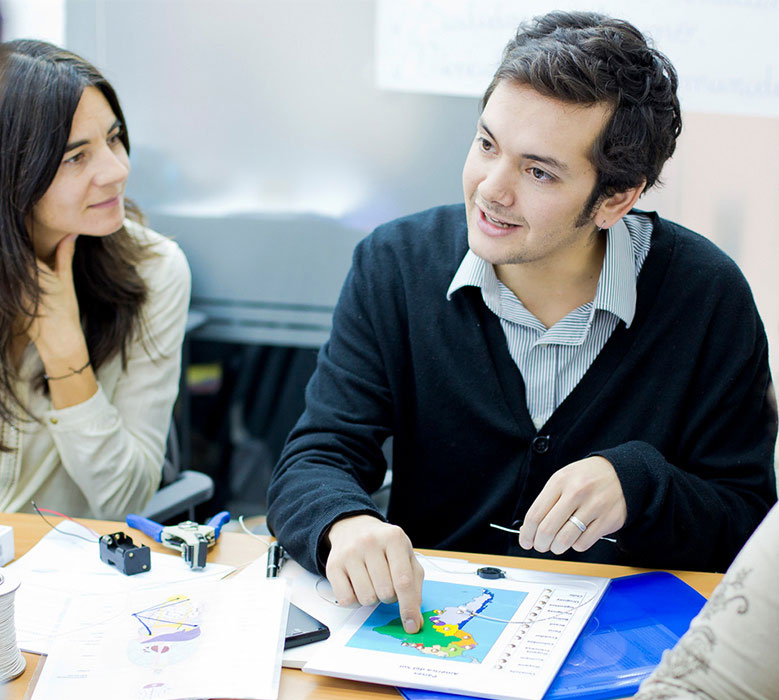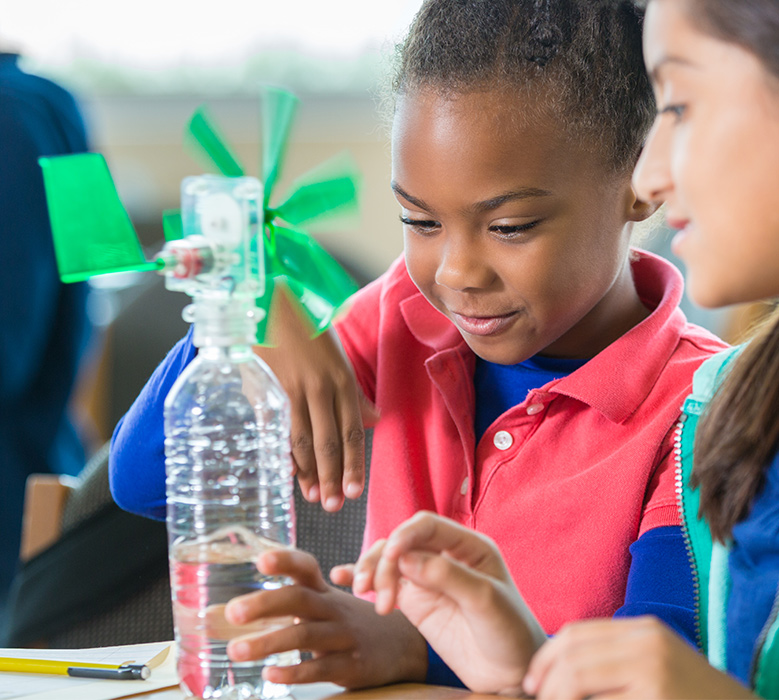How can our foundation work remain relevant in a rapidly changing world and achieve the greatest possible social impact? An interview with Dr. Nina Smidt and Klaus Grünfelder about Siemens Stiftung’s adapted strategy and why learning and creating together are crucial to this.
«The goal was 'evolution' with maximum benefit to society.»
Dr. Smidt, as Managing Director and Spokesperson of the Board of Directors at Siemens Stiftung, you are responsible for the content-related and operational orientation of the foundation. Together with your team and the Board of Trustees, you have spent the last two years reflecting on the strategic direction of the organization. Where do you stand right now?
Dr. Smidt: We have been through an intensive and collaborative process, which also coincided with the Corona pandemic. Initially, the extent of the changes that the pandemic would bring to societies worldwide was uncertain. However, the concept of a “VUCA” world, characterized by volatility, uncertainty, complexity, and ambiguity, has since gained prominence in discussions. Whether it pertains to the climate crisis, digitalization, or artificial intelligence, we are witnessing a rapid and profound transformation in our lives.
Access to
Essential Services
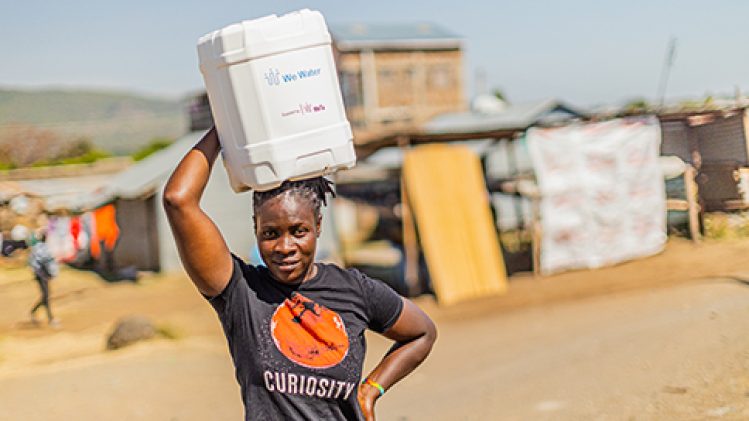
for a sustainable social development
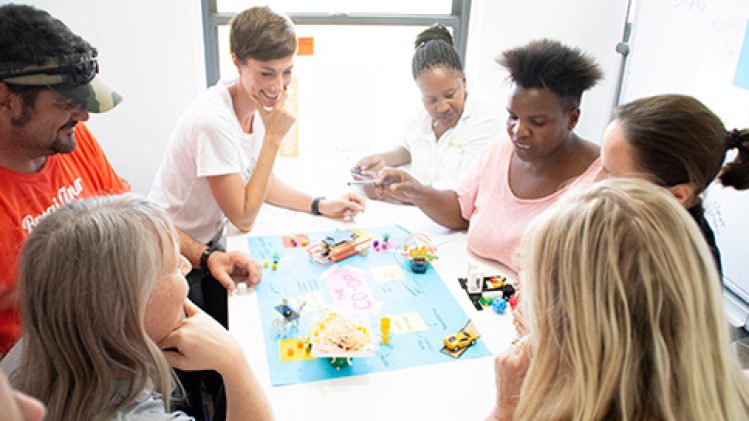
Societies

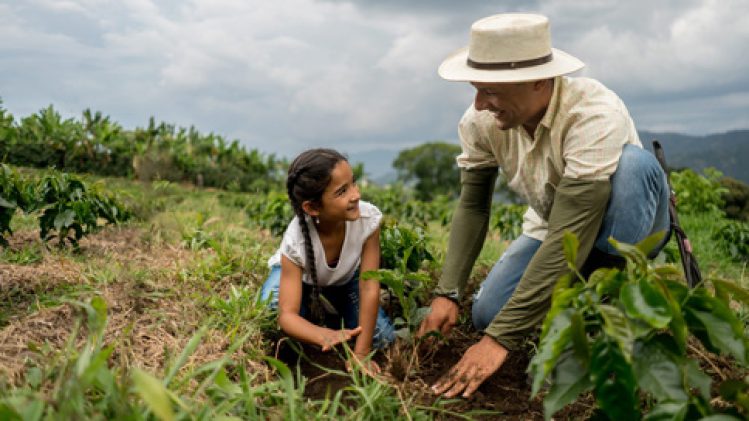
Mr. Grünfelder, you are responsible for finance, controlling and organization at the foundation. Why exactly are these three topics?
Grünfelder: Together with the entire foundation team, we analyzed the areas in which we can currently provide the most effective impetus for a livable future with our competencies in Education, Social Entrepreneurship and Arts & Culture, as well as our financial resources. And where synergies can arise in the team and our network.
«Cooperation and co-construction are crucial for sustainable positive transformation.»
What synergies do you mean exactly?
Dr. Smidt: Our guiding principle is “Together for sustainable social development”. This means that cooperation and co-construction are crucial for sustainable positive transformation. This is true for us as an organization and for our cooperation with partners in Africa, Europe, and Latin America.
Grünfelder: As a foundation team, we focus together on three thematic areas. This changes the way we work together and the impact of our work. At the same time, we see great opportunities in cross-sector alliances in terms of content and funding.
«It's about a 'culture of digitality' that links realities of digital and analog worlds.»
This networking idea is also reflected in the new focus topic of “Connected Societies. Is this also about digitalization?
Dr. Smidt: It’s about a “culture of digitality” that links the realities of digital and analog worlds in a meaningful way. Primarily, it’s about spaces for mutual learning and knowledge transfer, equal opportunities, and social participation; for example, via digital teaching and learning platforms that make materials available free of charge and license-free as “Open Educational Resources“.
Digital solutions play a major role here, especially for dialog and participation. In addition, initiatives such as our STEM Network Red STEM Latinoamérica, the music platform Music In Africa or the open art school LA ESCUELA___, which connect stakeholders from entire continents, are so successful because there are always opportunities to come together in one place, think about new things and develop them together in a sustainable way.
Sustainability is also part of your “Climate & Sustainability” theme.
Dr. Smidt: This topic has become increasingly explosive, especially in recent years. More and more people, companies and governments are recognizing how important sustainability is for environmental protection, dealing with social challenges and responsible business.
We see climate change education as an important lever. So how can we introduce people to living sustainability early on and prepare them to deal with changing climate conditions? STEM education, combined with “21st Century Skills”, has enormous potential here. We are already active here with several initiatives, including as a longstanding partner of the Office for Climate Education.
Grünfelder: Our cooperation with social enterprises in particular makes it possible to test and implement concrete solutions to combine climate protection with sustainable business in a business model. In Sub-Saharan Africa, for example, we are working on ecosystems for electric mobility and sustainable electricity supply sources.
Dr. Smidt: The issue of climate protection is so big that it requires the efforts of all stakeholders in society. Our focus is on productively harnessing the potential of STEM education and technologies, and on using creative approaches to provide impetus for local solutions. Often in cooperation with major partners such as the European Commission, the UN Environment Programme or the F20 foundation network.
«Our hands-on operating projects often serve as 'innovation hubs'»
What contribution can Siemens Stiftung make in such alliances?
Dr. Smidt: We are one of the few foundations that works internationally on three continents and at the same time has local roots. Our hands-on operating projects often serve as “innovation hubs.” We test innovative approaches on a small scale, which then offer numerous points of contact for other partners and further development.
Grünfelder: WeTu, our social enterprise in Kenya, is a good example: in 2019, it started with six kiosks for water and energy at Lake Victoria with our start-up and growth financing. Today, the enterprise reaches more than 20,000 people in twelve locations and directly employs 50 local full-time staff and about as many more indirectly through local partner organizations. WeTu also serves as a local innovation hub. Here, numerous innovative solutions are created in collaboration with local start-ups, for example for e-mobility or the circular economy. Furthermore, WeTu is one of 30 international partners and serves as a demonstration site for the EU-funded Smart Energy Solutions For Africa (SESA) project. Innovative photovoltaic and energy storage systems and possibilities for rural Internet access are being tested there.
Dr. Smidt: We always start our initiatives by addressing specific local challenges. STEM Education for Innovation, for example, started as a pandemic emergency effort to bring together educational actors from across Latin America to develop high-quality digital teaching and learning materials. Within a few years, this initiative became an integral part of our network work in Latin America, providing important impetus for the long-term transformation of the education system. We now have 180 partners from 13 countries working together to advance STEM education in the region.
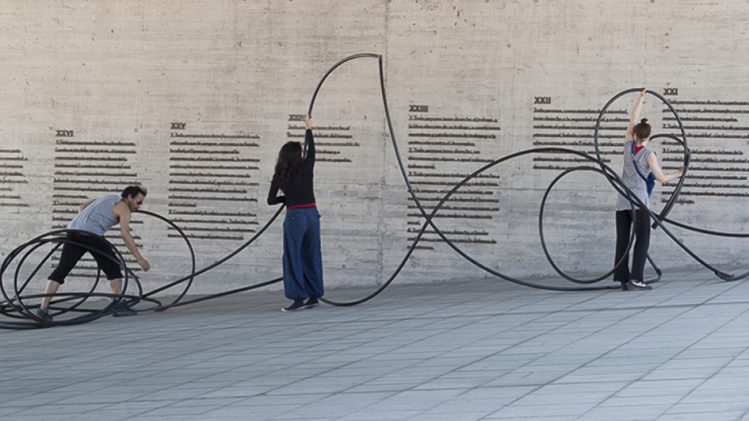
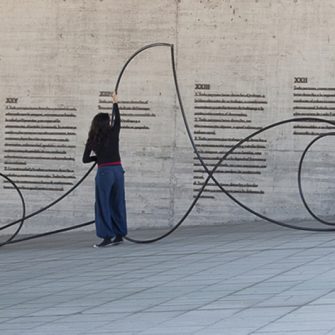
Is sustainability an issue only for project work or also for the entire organization?
«For us, diversity, equity, and inclusion are integral aspects of sustainability.»
Grünfelder: We need to embrace a comprehensive approach to sustainability. We will be systematically shaping our sustainability strategy in the coming fiscal year with a dedicated Sustainability Manager.
Dr. Smidt: For us, diversity, equity, and inclusion are integral aspects of sustainability. These factors are considered essential guidelines within the foundation sector. Our focus is specifically on empowering women as catalysts for change in the realms of business, science, and society.
We need to embrace a comprehensive approach to sustainability
Finally, the issue of “Access to Essential Services” is one that the Siemens Stiftung team has been pursuing since the foundation was established.
Dr. Smidt: Yes, because this topic is more relevant than ever before. The gap between rich and poor is growing. In some regions, state care systems are still not functioning adequately. With our commitment, we strengthen people and organizations to drive transformative change.
Particularly, we want to support local social enterprises in underserved regions with their solutions. They are the ones who drive long-term development forward with a sense of responsibility. We accompany them on their journey with targeted offers for financing, learning and development. The focus is on sustainable energy, e-mobility and water & sanitation.
Education is also fundamental to fostering change. Our project AccessSTEM, provides Internet access to schools in Ghana that previously had no Internet connectivity. Students are now gaining access to high-quality digital educational resources for the first time through cooperation with the social enterprise BLUETOWN.
«The new district will become a creative experimentation ground for international STEM education innovation.»
What can we look forward to in the coming months?
Dr. Smidt: One project that is growing enormously right now is our MINT Hub in Berlin. The new Siemensstadt Square district is becoming a creative experimental field for international STEM education innovations. Design thinking workshops, Make@thons for students, and a classroom of the future will open new experiential spaces for the education of the future.
We want to provide children and young people with important skills for the future through good STEM education. STEM subjects that transcend subject boundaries in particular can prepare them to solve challenges in a volatile, uncertain, complex and digitally shaped world. We call this approach STEMplus.
«We provide and receive inspiration. This keeps our work in motion.»
Where do you see the Siemens Stiftung in 10 years?
We provide and receive inspiration. This keeps our work in motion. However, our endeavors are always guided by the aim of motivating individuals, exploring novel concepts, fostering collective learning, and playing a responsible role in shaping society.



